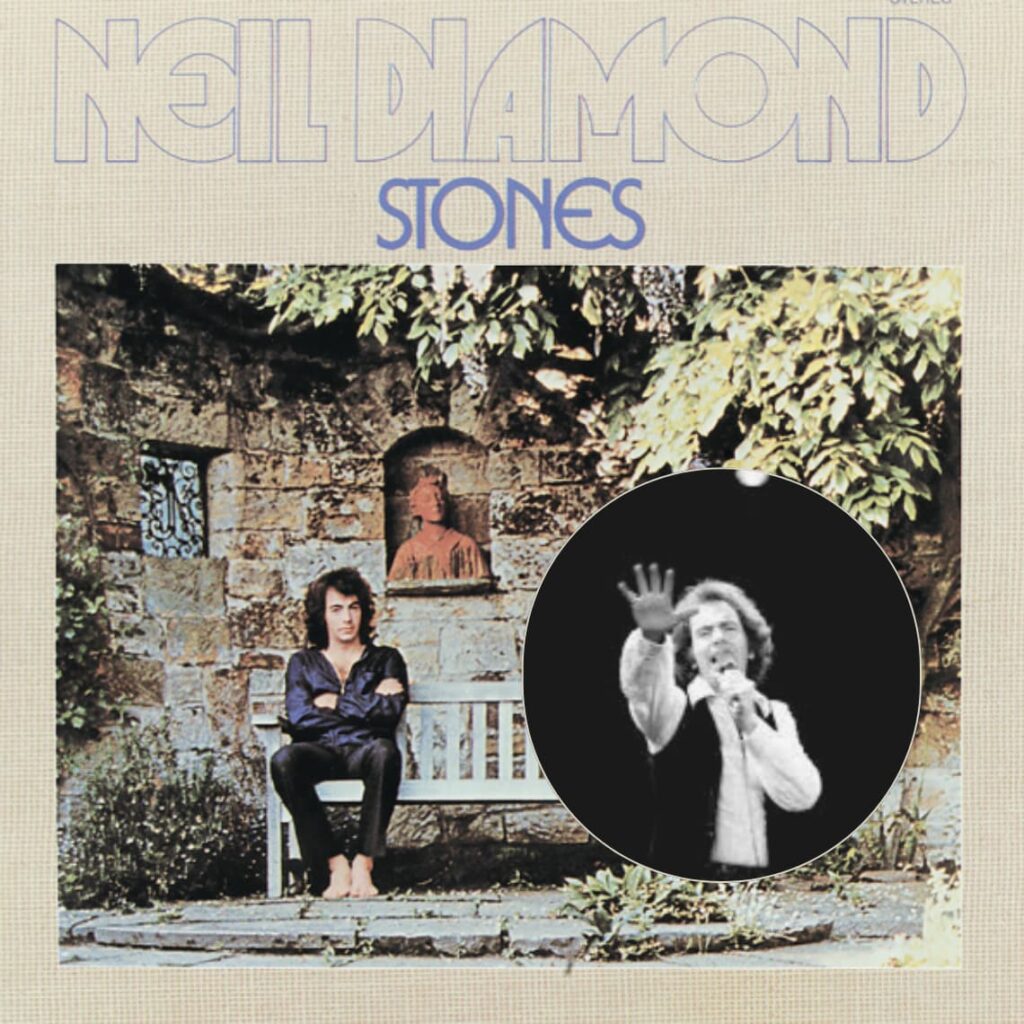
A Melancholy Masterpiece: Unpacking the Enduring ache of “If You Go Away”
Ah, Neil Diamond. Just the name itself conjures up images of sequined shirts, passionate performances, and songs that burrow deep into the soul. But for many, especially those of us who have seen a few decades come and go, there’s a particular resonance with one of his more understated yet profoundly moving pieces: “If You Go Away.” This wasn’t a raucous stadium anthem; it was something far more intimate, a whispered fear given voice, a heartfelt plea born from the quiet corners of the heart. Released in 1971, it found its place on the charts, quietly ascending to No. 68 on the Billboard Hot 100, a respectable showing for a song that defied the more upbeat trends of the era, proving that vulnerability could find a home amidst the pop landscape. It was nestled within the critically acclaimed album, “Stones,” an LP that showcased a more introspective side of Diamond, a side that resonated deeply with listeners.
The story behind “If You Go Away” is as poignant as the song itself, and like many great works of art, it has roots that stretch beyond its most famous interpreter. This isn’t a Diamond original, but rather a masterful English adaptation of a haunting 1959 French chanson, “Ne me quitte pas” (Don’t Leave Me), penned and performed by the legendary Belgian singer-songwriter Jacques Brel. Brel’s original was an intense, almost desperate plea from a man on his knees, begging his lover not to abandon him, even after he has seemingly driven her to the brink. The sheer raw emotion, the vulnerability, and the poetic desperation of Brel’s lyrics made it an iconic piece in French music.
When the English lyrics were crafted by the talented poet and singer Rod McKuen, they retained much of that core emotional intensity but infused it with a slightly different, perhaps more universally relatable, longing. McKuen’s version, famously covered by a myriad of artists before Diamond, softened some of Brel’s more abject self-abasement, transforming it into a more melancholic, almost resigned lament about the unbearable void left by a loved one’s departure. It speaks to the universal fear of loss, the gnawing anxiety that accompanies the potential absence of someone who has become inextricably woven into the fabric of your life. The song isn’t necessarily about a definitive breakup, but rather the threat of one, the chilling contemplation of a future devoid of that cherished presence.
Neil Diamond’s rendition, however, added a layer of profound sensitivity that made it truly his own. His rich, resonant baritone, usually capable of soaring to exhilarating heights, here adopted a hushed, almost conversational tone. He didn’t belt out the lyrics; he confided them. Every note, every inflection, carried the weight of unspoken grief and unspoken promises. You could hear the quiet desperation in his voice, the unvarnished pain of someone contemplating a life diminished by absence. It wasn’t just a performance; it felt like a confession. For many of us, hearing Diamond sing these words was like listening to our own deepest anxieties being articulated with a beauty and grace we couldn’t muster ourselves.
The meaning of “If You Go Away” is multifaceted, resonating with anyone who has loved deeply and feared loss. On one level, it’s a direct plea to a romantic partner, a raw expression of dependence and the shattering impact their departure would have. The lyrics paint vivid, almost tactile images of the world changing, darkening, and becoming unbearable without the beloved: “If you go away, as I know you must, there’ll be nothing left in the world to trust.” But beyond the romantic, the song speaks to a broader human experience of attachment and the void left when those attachments are severed. It could be a child leaving home, a close friend moving far away, or even, for those of us who have experienced it, the inexorable march of time taking loved ones from us permanently. The beauty of its ambiguity is precisely what allows it to touch so many different emotional chords.
In an era of increasingly elaborate arrangements and studio wizardry, Diamond’s version of “If You Go Away” stands out for its elegant simplicity. The sparse instrumentation, often just a piano and strings, allows the power of the lyrics and the raw emotion of his voice to take center stage. There’s no hiding behind production tricks; it’s just the pure, unadulterated feeling laid bare. And perhaps that’s why it has endured, why it continues to pluck at the heartstrings of successive generations. It’s a timeless testament to the fragility of love, the agony of potential loss, and the enduring power of a beautifully crafted song to articulate the most profound human emotions. For those of us who remember its first whisper on the airwaves, it remains a poignant reminder of loves lost, fears confronted, and the enduring, sometimes painful, beauty of human connection. It’s a song to be savored, to be felt, and to be remembered for its quiet, yet devastating, power.